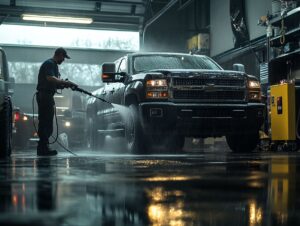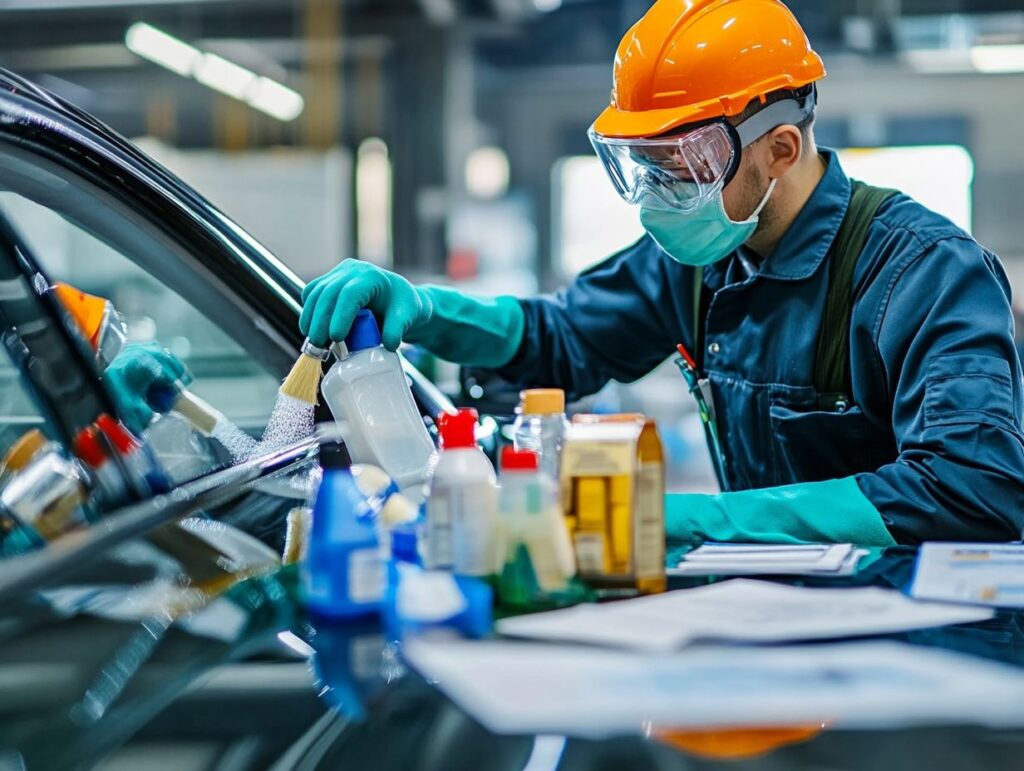
In the fast-paced world of auto detailing, ensuring safety is not merely an obligation; it is a necessity. For both business owners and customers, recognizing the significance of safety certifications and training can greatly impact the quality of service rendered.
This article delves into OSHA safety standards, recognized certifications for technicians, various training programs, and practical steps for implementing safety measures in your business. You will discover how prioritizing safety can enhance your reputation and create a secure environment for both employees and clients.
Importance of Safety Certifications and Training for Auto Detailing Businesses
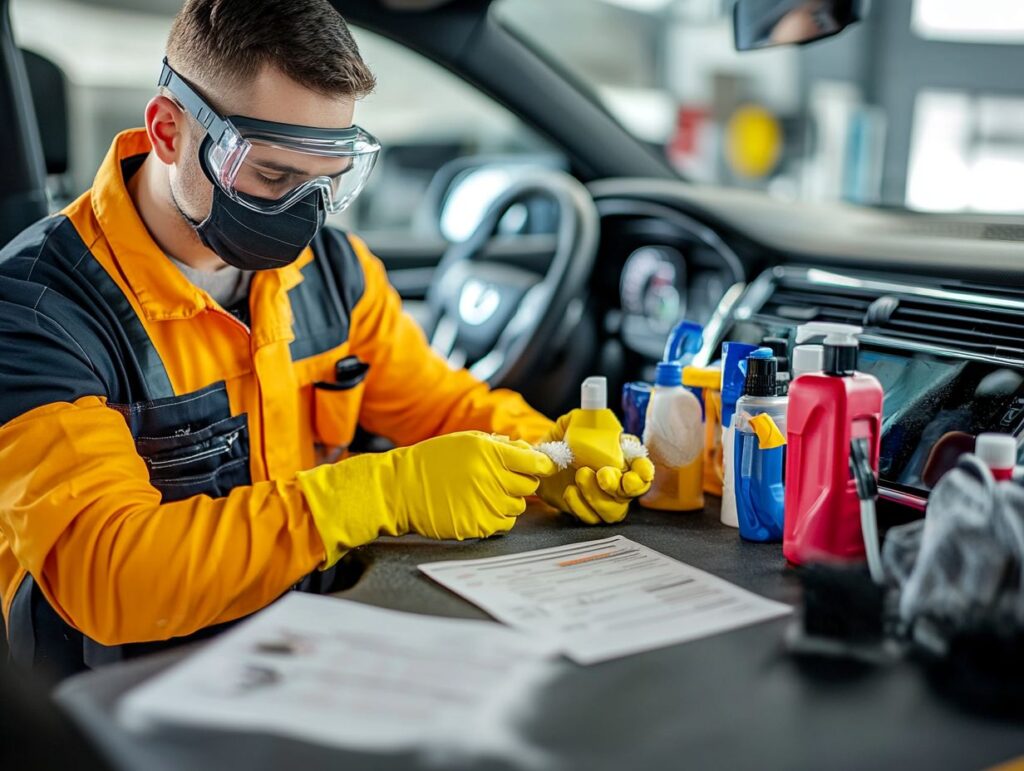
Prioritizing safety certifications in auto detailing is crucial for both your business and your clients. It creates an environment where customer safety is the top priority and operational standards are upheld.
When a detailing business invests in liability insurance and ensures that employees are trained in effective cleaning procedures, it not only safeguards the business but also enhances the overall quality of service. This, in turn, leads to greater customer satisfaction and builds trust.
Implementing these measures fosters a sense of reliability, making customers feel valued and secure. This significantly boosts client retention rates. Clients are more inclined to select a detailing service that demonstrates compliance with safety regulations, knowing their vehicles are in the hands of knowledgeable professionals.
Furthermore, when employees receive proper training and prioritize safety, it decreases the likelihood of accidents. This creates a healthier work environment and elevates staff morale, which ultimately translates into improved customer interactions.
OSHA Safety Standards for Auto Detailing
The Occupational Safety and Health Administration (OSHA) sets important safety standards for auto detailing businesses. These standards are crucial for ensuring that operational protocols are followed and that employees can work in a safe environment.
For auto detailing companies, compliance with OSHA standards is not only about protecting employees from workplace hazards; it also helps position the business as a leader in safety management within the industry. This commitment includes conducting regular safety inspections, adhering to environmental regulations, and maintaining overall workplace safety.
By prioritizing these practices, companies can foster a culture that truly values health and safety.
Key Regulations and Requirements
Understanding the key regulations and requirements established by OSHA is essential for any auto detailing business aiming for excellence and safety in its operations. This includes implementing thorough compliance training programs that address important topics such as chemical safety, personal protective equipment (PPE), and first aid training.
Such training prepares employees for potential hazards they might face while working with various cleaning agents and detailing products.
By adhering to OSHA guidelines, businesses not only protect their workers from exposure to harmful substances but also cultivate a culture of safety that can boost employee morale and productivity. It is important for business owners to regularly review and update their safety protocols to ensure they align with current regulations, particularly concerning the safe handling and disposal of chemicals.
Additionally, conducting regular drills and refresher courses is vital to guarantee that team members are well-prepared to respond effectively in emergency situations. This proactive approach minimizes potential risks and contributes to a safer workplace environment overall.
Certifications for Auto Detailing Technicians
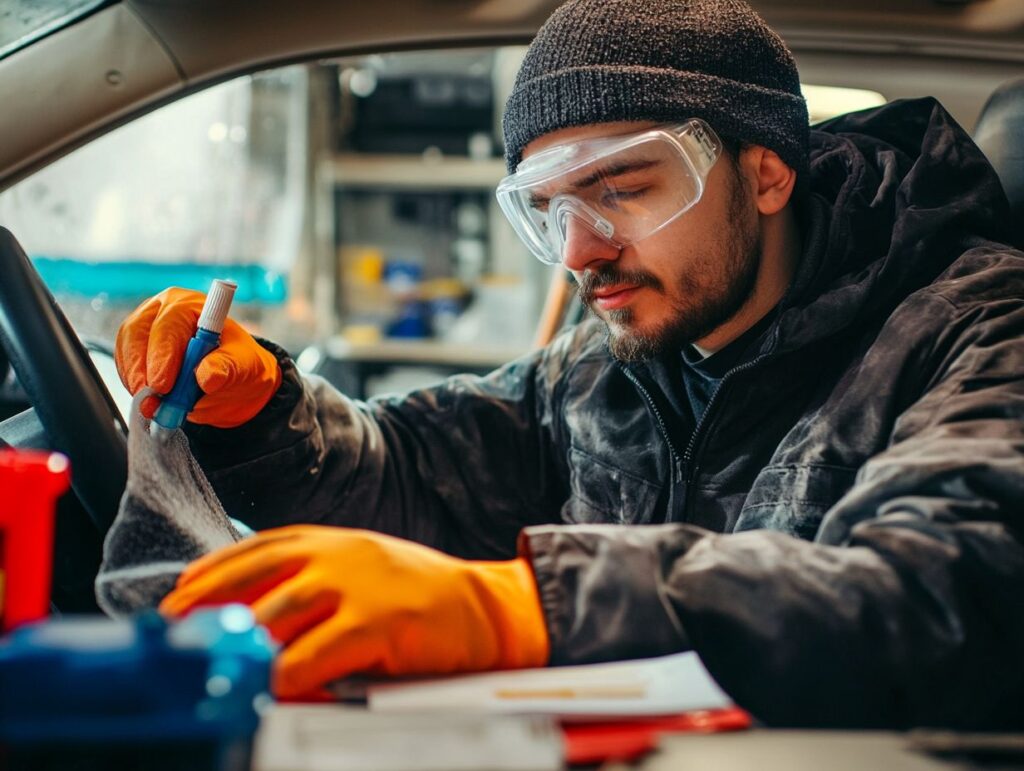
Certifications for auto detailing technicians are essential for professional development, skill assessment, and ensuring quality assurance within the detailing industry.
When technicians enroll in recognized certification courses, they acquire crucial knowledge about detailing techniques, equipment safety, and best practices. This not only enhances their effectiveness but also reinforces safety standards in their work.
By committing to continuous learning and certification, technicians emphasize the importance of maintaining high standards in the auto care industry, which ultimately contributes to improved customer satisfaction.
Recognized Certifications and Their Benefits
Recognized certifications from reputable certification agencies offer a range of benefits for auto detailing technicians, including enhanced knowledge of detailing safety and improved operational efficiency. These training certifications provide valuable insights into best practices, allowing employees to effectively utilize detailing tools and products while ensuring compliance with industry standards and safety protocols.
Obtaining certifications such as the International Detailing Association (IDA) Certification or the Automotive Detailing Association (ADA) Accreditation not only enhances a technician’s credibility but also promotes a culture of continuous learning. Technicians who pursue these credentials gain access to advanced techniques in paint correction, surface protection, and detailing maintenance, which ultimately leads to superior service quality for clients.
Certified professionals are more likely to adhere strictly to safety standards, thereby reducing the risk of accidents and ensuring the proper handling of chemicals. This commitment to excellence significantly enhances customer satisfaction and contributes positively to the overall reputation of the detailing business.
Training Programs for Auto Detailing
Training programs for auto detailing play a crucial role in shaping skilled technicians who are knowledgeable about the latest detailing techniques and safety protocols.
These programs typically feature hands-on training, workshops, and comprehensive procedural knowledge. This approach not only enables employees to communicate effectively with clients but also ensures that they deliver high-quality service while adhering to safety guidelines.
Types of Training Available and How to Choose
Selecting the appropriate training for your auto detailing team is essential for ensuring compliance with industry standards and promoting best practices. There are various options available, ranging from formal training resources and certification courses to informal workshops that emphasize specific detailing techniques and safety protocols.
It is important to consider the needs of your business and employees as you navigate this selection process.
To begin, businesses should assess the skill levels of their employees and identify any gaps in knowledge or performance.
Formal certifications from recognized organizations provide a structured approach, encompassing comprehensive detailing practices, environmental safety regulations, and customer service excellence. Conversely, informal workshops can offer practical, hands-on experience that is often tailored to the latest technologies or products in the market.
By integrating both types of training, businesses can cultivate a dynamic learning environment that enhances proficiency while keeping the team motivated and engaged. Additionally, conducting surveys or performance reviews can help further identify the most beneficial training initiatives for the team.
Implementing Safety Measures in Your Business
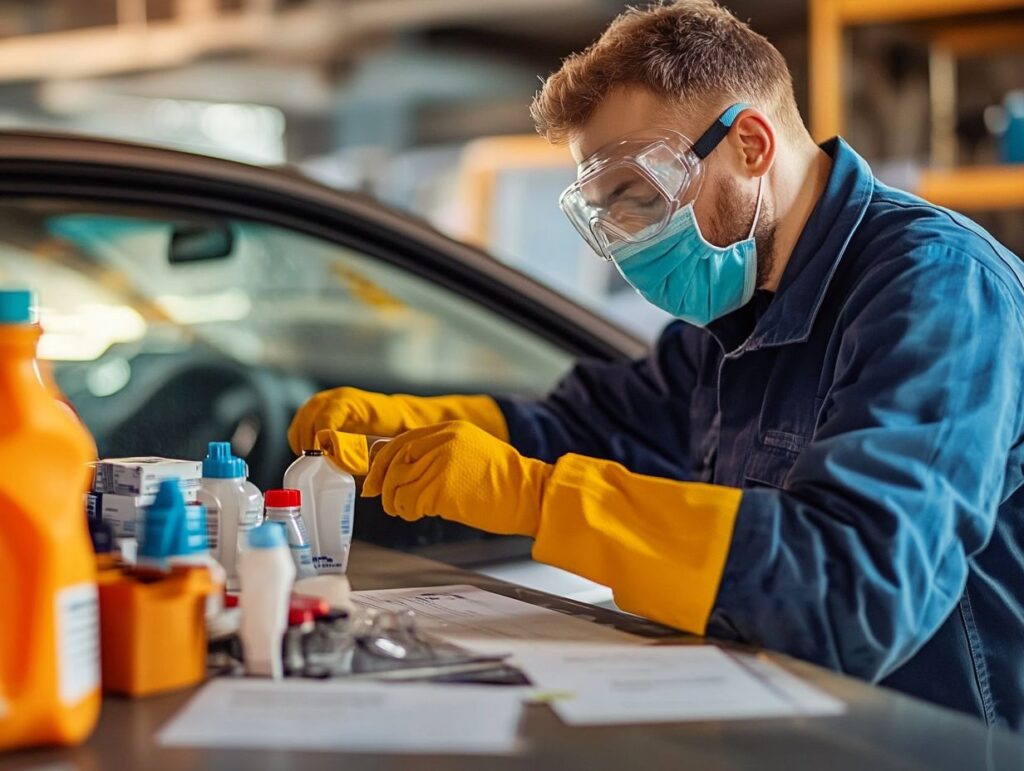
Implementing robust safety measures in an auto detailing business is essential for preventing accidents and promoting a culture of workplace safety.
This includes establishing clear safety guidelines, conducting regular safety audits, and ensuring that all employees are well-informed about emergency procedures and the proper handling of hazardous materials.
By prioritizing safety, you not only protect your employees but also enhance the overall reputation of your business.
Steps to Ensure Safety for Employees and Customers
To ensure the safety of both employees and customers in your auto detailing business, it is essential to adopt comprehensive safety protocols that address potential workplace hazards and implement effective risk management strategies. This includes conducting regular training sessions for employees, maintaining an inventory of safety data sheets for all cleaning agents, and ensuring that appropriate personal protective equipment is readily available and used correctly.
Creating an organized workspace can significantly reduce the likelihood of accidents; clutter-free areas facilitate safe movement and mitigate tripping hazards. Additionally, implementing a clear set of emergency procedures and conducting drills can prepare employees for unforeseen situations. Regularly reviewing these protocols with the team fosters a culture of safety awareness.
Maintaining proper ventilation while using chemicals is also crucial, as it protects both workers and clients from harmful fumes, ensuring a healthier environment for everyone involved.
Frequently Asked Questions
1. What safety certifications are needed for an auto detailing business?
To operate a safe and compliant auto detailing business, you may need to obtain certifications such as OSHA training, Hazmat training, and EPA certifications. These will ensure that you are able to handle potentially hazardous materials and protect yourself, your employees, and your customers.
2. Do I need to have any specific training to work in an auto detailing business?

While there are no specific requirements for training in the auto detailing industry, it is highly recommended that you and your employees receive proper training in areas such as proper handling of chemicals, safe use of equipment, and best practices for personal and environmental safety.
3. Are there any safety certifications that are industry-specific for auto detailing?
Yes, there are several industry-specific safety certifications that may be beneficial for an auto detailing business. These include the International Detailing Association (IDA) Certified Detailer program and the National Detailing Association (NDA) Certified Detailer program.
4. How can I ensure that my employees are properly trained in safety procedures?
Aside from obtaining certifications and training for yourself, it is important to provide comprehensive training for your employees as well. This can include holding regular safety meetings, providing hands-on training, and requiring employees to complete safety courses.
5. What are some common safety hazards in an auto detailing business?
Some common safety hazards in an auto detailing business include exposure to chemicals and fumes, risk of electrical shock, and potential for slips, trips, and falls. It is important to have safety protocols in place to prevent these hazards and protect yourself and your employees.
6. Is there any ongoing training required for safety certifications in an auto detailing business?
Yes, in order to maintain safety certifications, there may be ongoing training requirements that need to be completed. This ensures that you and your employees are up-to-date on the latest safety procedures and regulations in the industry.
The AutoPros.online team is dedicated to bringing you high quality automotive content for professionals and car enthusiasts, with topics like auto detailing, performance modifiations, repairs and automotive news.


